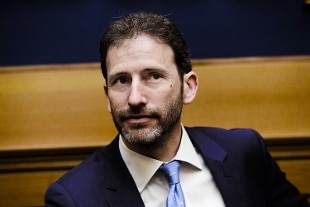States General M5S, controversy over Rousseau's online vote
M5s.
Bonafede: "New governing body in November".
Morra: "Don't distort the project"
Share
November 14, 2020 "Some newspapers are wondering about my possible presence at the States General of the 5 Star Movement. I received an invitation yesterday to participate in Sunday's discussion".
The president of the Rousseau association, Davide Casaleggio, writes on Facebook.
"I decided to decline because I believe that if there are rules of engagement, they must be respected," he adds.
"I think it is right to publish the votes of both the delegates on Saturday and the speakers on the Sunday before the event, as well as the minutes of the provincial and regional meetings, in the original version, which report the results of the official meetings in which everyone was able to participate and which today are not public ", adds Rousseau's number one.
"Reading the guiding document of the discussion of the first day, I note that many decisions have already been taken for granted and only the details are asked. On others, such as the question of the bond between the two mandates, the indication from the territories was clear, that is that remains untouchable, but the first point of the guiding document explicitly indicates to debate on possible exceptions to be adopted "
States General M5s, it is a battle for leadership
Alliances with parties, leadership, revisiting the dogmas of the origins, from one is worth one to the denial of politics as a profession: seven years after its debut in Parliament, the 5 Star Movement takes stock of the direction it has taken and where it intends to go.
And after a thousand second thoughts and many postponements, it arrives, exactly one year after its announcement, to celebrate its States General: those that should not be called "congress".
The States General, with the help of Rousseau, opened their doors with a two-day debate, strictly online, about the cause of the pandemic.
It begins on Saturday with the "greeting" of Prime Minister Conte and the start of three working groups: one dedicated to the political agenda, while the other two will focus on organization and rules.
"To design how the 5 Star Movement will be able to renew itself, also in the light of the experience gained in the institutions, at all levels" announced the political leader Vito Crimi, current regent.
On Sunday, in the hope that Beppe Grillo's contribution will come true, the public debate will be held, broadcast in streaming, in which the 30 speakers chosen from almost a thousand candidates will be able to intervene through an online voting of subscribers on Rousseau.
It will be the moment of direct confrontation between the various "motions" in the field and between the various leaders who over the years have carved out their own specific political profile: Luigi Di Maio and Alessandro Di Battista, Roberto Fico and Paola Taverna among the many others also voted among the ranks of representatives in the current and past government.
Precisely this passage, the most delicate of the whole event, has however already caused the first distances and discontent among the 5 Stars.
Crimi has decided not to disclose the number of preferences received by each "speaker" until the governing body of the Movement is decided.
Which could be collegial or remain in the hands of a political leader as it is now.
Certainly, however, this also means obscuring the weight that the 26,000 voters gave to each of the elected (but also rejected) "speakers" and to their electoral platform.
Roberto Fico invokes, for example, "a collegial body to manage a Movement" and "synthesis".
Di Battista comes up with a program that points to the inviolability of the rule of two mandates, to no to electoral alliances and to the strengthening of the Rousseau platform and he does not seem to mind the formula of the political leader.
Di Maio is for collegial leadership, winks at the territories promising them more funding and theorizes the need for programmatic alliances at the local level.
Then there is the group of Parole Guerriere that Luigi Gallo sent forward in his name and that not only proposes a collegial direction but calls for an organization of the movement on the model of the other parties, with its management bodies and autonomy that starts also from the detachment from Casaleggio and Rousseau.
Knowing how many votes each of them has collected would therefore already be a signal on the direction to take.
Finally, the question of the two mandates seems to remain off the agenda: hardly anyone says a word about it, apart from Di Battista, and many imagine that the ban will lapse when needed.
To the point that, after Virginia Raggi, Giancarlo Cancelleri, already much talked about for having abandoned his seat as Sicilian regional councilor, held for two terms, to fill the role of Deputy Minister of Transport, has now announced his intention to reapply for the third time as governor of Sicily.

